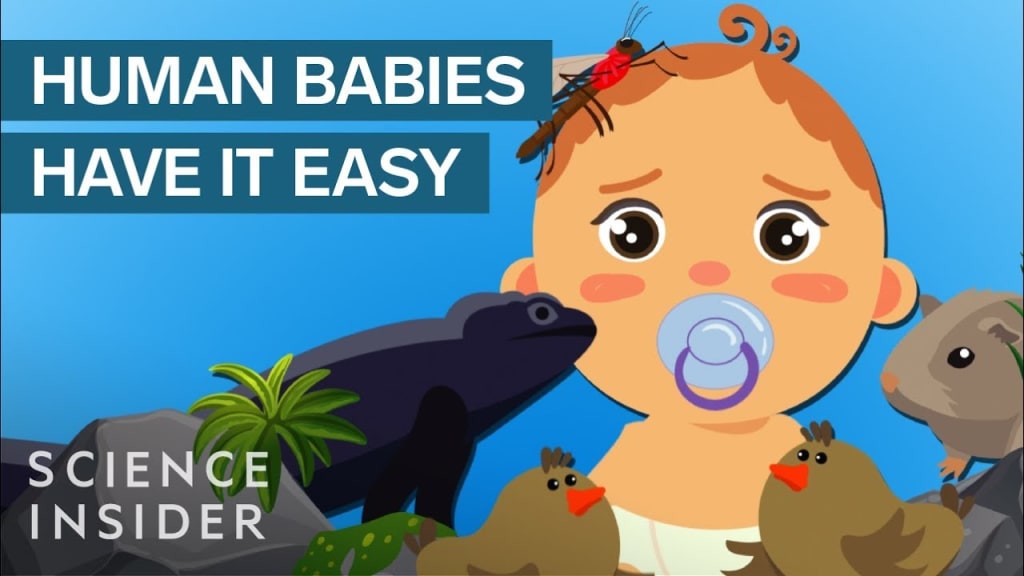Meet the Animal Kingdom's Most Impressive Newborns!
Impressive Animal Newborns!

Ever wondered what it would be like to give birth to a baby weighing as much as a compact car, a whopping 1,360 kg? Well, for blue whales, the colossal giants of the ocean, this is the norm when it comes to their newborns. These gentle leviathans, the heaviest creatures to ever roam our planet, usher their calves into the world with an astounding entrance. During their nursing period, these majestic blue whale calves pack on an astonishing 90 kg of weight each day, thanks to their mother's ultra-rich milk, which boasts a mind-boggling tenfold fat content compared to ordinary cow's milk. By the time they reach adulthood, these once-small calves have grown to rival the size of a Boeing 757 aircraft.
Now, let's shift our gaze from the immense ocean to the massive land mammals, specifically elephants. An elephant calf, after spending nearly two years in gestation, enters the world already tipping the scales at 105 kg, which is more than double the weight of a human newborn. Not far behind are giraffes, who give birth to 75 kg calves. What makes giraffe births truly remarkable is that they occur while the mother is standing, causing the calf to drop nearly 2 meters to the ground. This dramatic drop serves a vital purpose, breaking the amniotic sac and allowing the newborn giraffe to take its very first breath.
Moving on to another heavyweight in the animal kingdom, the white rhino boasts a gestation period of 15-16 months and gives birth to calves weighing between 40-64 kg, roughly the size of an adult Saint Bernard.
However, the real challenge in childbirth isn't just the size of the baby but its size relative to the mother. This is where the shingleback lizard takes the spotlight. These resilient reptiles typically give birth to twins, and the combined weight of these offspring amounts to one-third of the mother's own weight. To put that in perspective, it's akin to a human delivering a 7-year-old child! Bats, on the other hand, may only give birth to a single offspring, but that little one represents a quarter of the mother's weight, which is equivalent to a human baby weighing as much as a 16-kg dog. In the world of horses, the situation is somewhat more manageable, as their offspring typically weigh in at about 1/10 of the mother's weight. For us humans, this would be like birthing a baby the size of a bowling ball.
Speaking of humans, our average newborns weigh approximately 3.5 kg, which is roughly 1/22 of the mother's size. While this might seem modest compared to some of the other examples, consider this: tiger cubs are born at a mere 1/120 of their mother's size, and the offspring of a red kangaroo are a mind-boggling 1/100,000 of the mother's weight. This means a newborn kangaroo can be as minuscule as a single grain of rice and still isn't prepared to leave its mother's pouch for over a year.
However, the tales of the tiniest of babies in the animal kingdom are stories for another day, filled with astonishing feats of nature and the incredible diversity of life on our planet.
About the Creator
Arnie Felicilda
Through my words, I aim to transport you to new realms, offer valuable insights, and ignite your passion for learning
Enjoyed the story? Support the Creator.
Subscribe for free to receive all their stories in your feed. You could also pledge your support or give them a one-off tip, letting them know you appreciate their work.






Comments
There are no comments for this story
Be the first to respond and start the conversation.